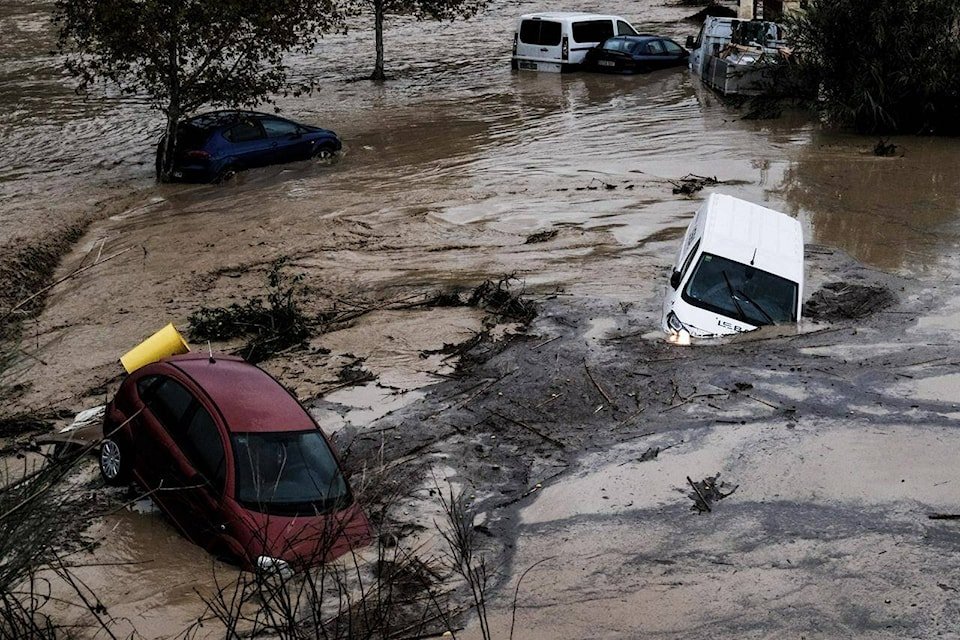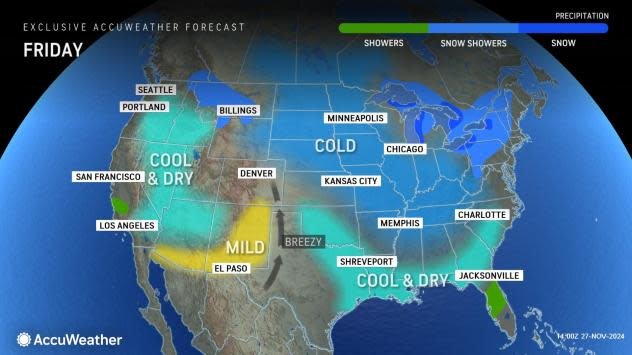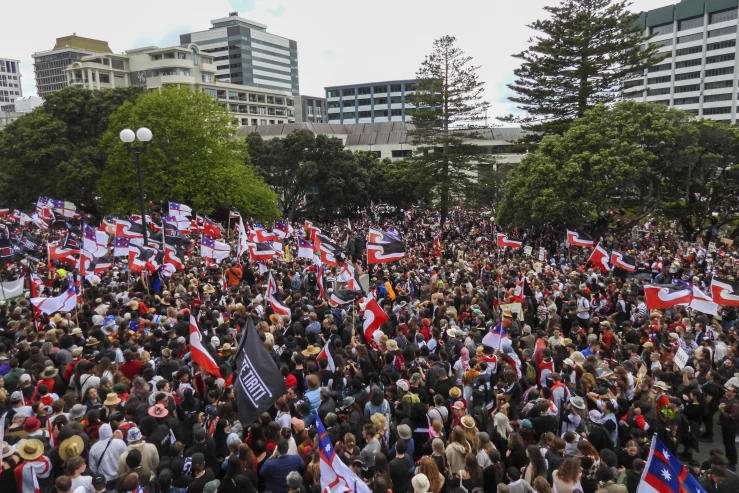
Flash Floods Wreak Havoc in Spain: Over 95 Dead as Torrential Rains Turn Villages into Rivers, Disrupt Transport, and Trigger Widespread Rescue Efforts
Flash floods have left destruction in Spain as they have washed away vehicles, turned village street ways into rivers, and brought transportation networks to a grinding halt. The death toll stands at least 95 in what has been described as one of Spain‘s worst natural disasters in recent memory.
Heavy downpours began on Tuesday and continued all through Wednesday relentlessly, causing extreme flooding in many parts of southern and eastern Spain, from Malaga to Valencia. The roads quickly became rivers of muddy waters as cars slid at alarming speeds in streets.
Domestic goods and debris swirled in the floodwaters as a whole scene was one of total chaos. Rescue teams and police, in helicopters and rubber boats, rushed to the scene to save trapped residents, airlifting many from rooftops and ferrying others from the roofs of their submerged cars.
The worst hit is the eastern region of Valencia; it has reached 92 confirmed deaths by Wednesday. The neighboring Castilla La Mancha also reported two more deaths while Andalusia in the south one. Because of this horrific disaster, Spain will face heavy loss and destruction that it has never experienced before in its recent history.

Flash floods unleash unsought tragedy in Spain in town devastation and lost life.
Flash floods have left deep scars in the town of Utiel, Valencia, where Mayor Ricardo Gabaldón described Wednesday as “the worst day of [his] life.” Speaking to national broadcaster RTVE, Gabaldón revealed the heart-wrenching loss of six residents and shared that many others are still missing as rescue efforts press on. The disaster’s intensity has rattled communities across Spain, many of whom are now facing heartbreaking losses and difficult recoveries.
Flash floods forced the town into a terrifying standstill, trapping residents without escape routes as torrents of water surged through streets, washing away cars and overflowing garbage containers. “We were trapped like rats,” Gabaldón said, recalling the frightening moment when floodwaters climbed to a staggering 3 meters, leaving residents stranded and clinging to whatever they could for safety.
It forced the Spanish government to announce three days of national mourning starting Thursday due to tragedies like this, where the nation needs to be slowly set to term with the loss of lives. The declaration is also a tribute to the victims who were killed in this tragedy and will usher in a unification sentiment with its people after one of the strongest natural disasters it faced in recent years.
Flash floods killed hundreds of people in Spain; desperate families looked everywhere to find the ones dear to them. The prime minister addressed the public through television as he declared, “To those seeking their beloved family members, all Spain sympathizes with you.” Indeed, in these poignant moments, Sánchez’s speech resounds like a summary statement for a country grappling as a collective entity across this entire nation in discovering what this catastrophe truly represents.Flash floods have warranted never-before-seen mobilization responses: over 1,100 soldiers from the military units of emergency response Spain are deployed to complement straining rescue teams. A whole crisis committee has also been established by the central Spanish government, which has ordered a coordinated rescue action strategy that will put the needs for the safety of the individuals first in the areas highly affected. This massive state mobilization is therefore directed towards saving lives and rebirth.
Flash floods have left the elderly in a worst-than-abysmal condition, given that most of them are unable to walk without help. The national television, RTVE, televised graphic pictures of elderly residents of homes for the elderly being taken out in their wheelchairs and chairs by floods that had dramatically gone higher than their knees. There was one rescue when the military unit utilized a bulldozer’s bucket in rescuing an old couple from the flooded second-floor apartment of their residence. Dramatic rescues drive home the enormity of this crisis and the country’s frail, elderly populace being cared for by vigilant and caring communities.


Flash Floods Unleash Catastrophe in Spain: Shocking Footage Shows Bridges Collapsing, Rivers Swelling, and a Rising Death Toll
Flash floods have left Spain reeling as terrified residents capture footage of waters surging through ground floors of apartment buildings, streams bursting their banks, and once-sturdy bridges giving way to powerful torrents. Distraught onlookers could be heard gasping, voices heavy with fear, pointing towards what seemed to be bodies swept away by the relentless, muddy currents. Destruction runs deep, and heart-wrenching scenes through television reports are showing that communities come to grips with the enormity of this disaster.
Such drastic transformations have been caused flash flooding in Valencia, the tourist haven known for its sun-kissed beaches and the lush citrus grove of oranges, which as many know is the mother of the world-famous paella. Generally considered a dry riverbed gorge full of serenity, Valancia’s Mediterranean coastline will have flash floods with tremendous rain. The Spanish National weather service described the same recent rainfall as “Extraordinary” in the intensiveness of the storm, said the same weather experts. Normally dry channels that meander through populated areas are now torrential rivers, adding risk and amplifying destruction in a region unprepared for rainfall of this magnitude.
The scale of the flash floods not seen in recent years, this week’s devastation has already passed any previous autumn storms to hit Spain. It would seem that the destruction seems to recall last year’s tragic floods in Germany and Belgium when over 230 people died. Spain had autumn storms before, but, officials say nothing like this catastrophe has ever occurred in the country. The death toll in the ongoing tragedy is suspected to increase as the search missions continue, especially in those areas that cannot be accessed by road. More regions also report victims.
Flash floods have put Spain’s government and rescue officials in a crisis of gigantic proportions. “We are facing a very difficult situation,” Minister of Territory Policies Ángel Víctor Torres said. “The fact that we can’t yet account for all the missing people only highlights the magnitude of this tragedy.” Many areas are still cut off, and hundreds of personnel are on the ground in Spain as it faces a challenging road ahead in rescue and recovery efforts.

Flash floods compound Spain’s climate woes: Tornadoes, hail, and massive transport disruptions amid continuing recovery from drought
Flash floods hit parts of Spain at a time when it still struggles with the effects of a long-running drought and record-breaking temperatures. Scientists consider extreme events like this severe flooding to be increased by climate change. All in all, the persistent drought has rendered the soil hard and dry, unable to absorb the sudden deluge, leading to ever more catastrophic flooding and landslides. Such factors contribute to climate challenges affecting the country as well as the increased frequency and intensity of natural disasters.
Flash floods also brought an unusual outbreak of severe weather, including a rare tornado and a freak hailstorm that tore through the region. The hail was so intense it shattered car windows and punched holes in the roofs of greenhouses, adding to the extensive property damage across Valencia and other areas. Local residents and officials are witnessing firsthand the escalating intensity of storms, with many attributing these unprecedented conditions to the region’s changing climate.
Flash floods and extreme weather caused severe transportation disruptions while a high-speed train en route to Malaga near the city derailed just before reaching its destination. About 300 passengers were left stranded, but fortunately nobody was injured. Rail operators were compelled to halt operation of high-speed trains going between Valencia and Madrid for the time being. Transportation ministry officials estimate that it can take up to four days to fully resume service for this route. In addition, bus and commuter rail services have been stopped, and on Tuesday night, around 1,500 passengers were stranded at Valencia’s airport when the flights were canceled. Air services resumed yesterday but the delays are continuing to affect travelers all over the country.
Flash floods have also challenged rescue efforts. Valencian regional President Carlos Mazón asked the public to stay indoors as most roads are impassable, littered with fallen trees, wrecked vehicles, and other flood debris. Widespread power outages and downed lines also hampered rescue operations, and Valencia’s regional emergency services have taken more than 30,000 calls in the massive effort to help distressed residents. With such a huge challenge, local and national agencies are working day and night to regain order and help communities as Spain confronts one of the largest natural crises in its modern history.


The President of the European Commission Ursula von der Leyen said from Brussels that EU will assist Spain by coordinating rescue teams and using Copernicus geo-monitoring satellite system to help provide relief. “Europe stands ready to help,” she declared, showing solidarity for the nation.
As the waters recede, streets are left smeared with thick layers of mud and debris, so that once-familiar areas look unrecognizable. “The neighborhood is destroyed; cars are piled on top of each other, completely smashed,” said Christian Viena, a bar owner in the Valencian village of Barrio de la Torre, talking over the phone. “It’s a total wreck—everything will have to be thrown out. The mud is almost 30 centimeters deep.”


Flash floods have left a haunting scene outside Viena’s bar, where people tentatively opened the door to survey the ruins and debris scattered around. They began to sift through the wreckage, determined to salvage as much as they could from the destruction. Streets were choked with massive piles of branches, while shattered cars lay strewn on top of each other, as if giants had tossed them aside. The devastation was overwhelming, leaving many in a state of disbelief at how such a tragic event could strike so hard and bitterly.Flash floods have led many residents to turn to social media, television, and radio broadcasts, desperately seeking information about their missing loved ones. Heartbreakingly, some families have yet to reunite with those caught in the flood’s path. Leonardo Enrique shared the anguish of his family, who spent hours searching for his 40-year-old son, Leonardo Enrique Rivera. The young man had been driving a delivery van when the torrential rains began. Enrique recounted receiving a distressing message from his son, who reported that his van was flooding and that he had been struck by another vehicle near Ribarroja, one of the hardest-hit areas. For Enrique and many others, the agony of waiting for news continues to take its toll.
Flash floods have even disrupted local sporting events, with games for Valencia and neighboring club Levante put on hold. The cancellation of these matches reflects the somber mood prevailing in the city, where the community prioritizes recovery over entertainment. As residents band together to support one another, the spirit of solidarity shines through in these dark times. As Valencia and its surrounding areas embark on the painstaking journey of recovery, they will face the full impact of the unprecedented flooding: a landscape marred by destruction and deep loss.
For more visit : Weather at global hub 360






